Social Responsiveness
12 November 2021 Read time 10 min.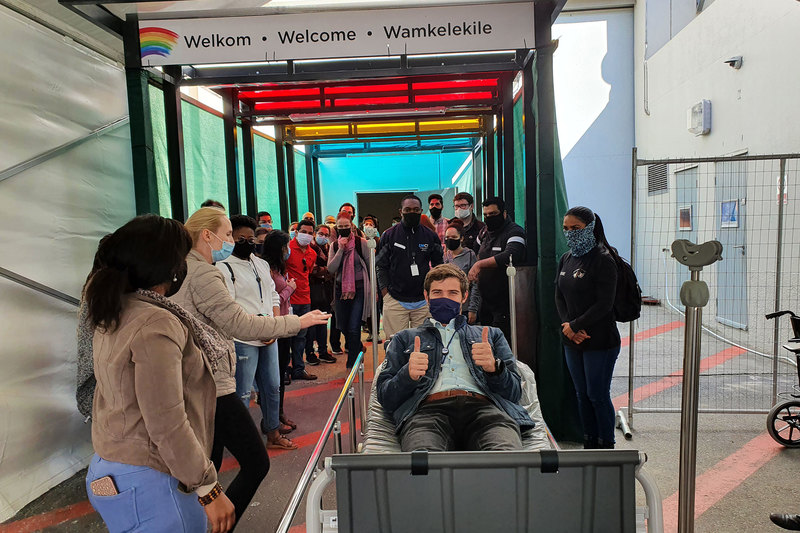
Part of the transformation portfolio, social responsiveness is key to the University of Cape Town’s (UCT) Vision 2030 and its pillars of excellence, sustainability, and transformation. From a scholarship perspective, social responsiveness is not concerned only with outreach. It compels the university to rethink knowledge production: how it is generated, its purpose and whether it is engaged with and geared to building a healthy, equitable society.
As a public-funded institution, UCT has an obligation to serve society; to pursue innovative scholarship that tackles the very many complex socio-economic and developmental challenges the African continent faces.
As an important stakeholder in the broader community, social responsiveness is at the heart of the university’s research endeavour. Here, UCT works in partnership with social structures, including government and local communities, social movements, and international and local organisations. These partnerships enable external constituencies to become active co-creators in the learning process and formation of diverse, transformative knowledge that is taught and disseminated at the university.
Fostering civic literacy in UCTʼs students is also key to expanding the reach and efficacy of this approach. It means equipping scholars to engage with policy development; and provide public commentary on developmental issues and strategies. It includes social outreach by the universityʼs students and student organisations.
It provides opportunities for lifelong learning. It embraces programmes that empower external constituencies. And, importantly, it means transforming the university’s curricula and pedagogies so that they are relevant to the problems facing society.
Community-based intervention to identify undiagnosed TB cases
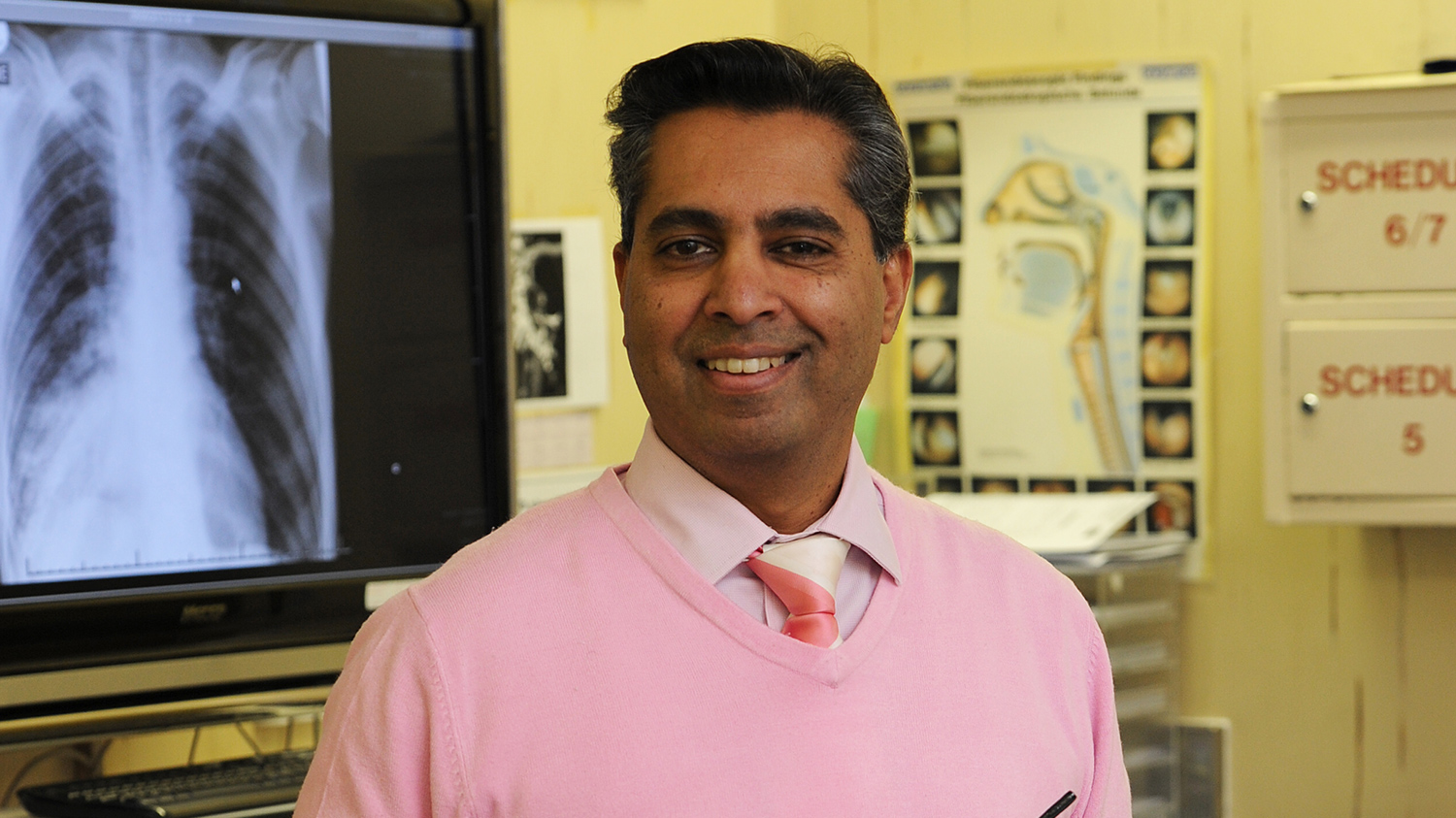
The XACT Model, a R100 million project, is set to revolutionise tuberculosis (TB) diagnosis and treatment by enabling early detection of infectious cases, by taking the molecular diagnostics technique out of the laboratory and into the community.
The project, the first of its kind for South Africa, was pioneered by a team of academics at the Centre for Lung Infection and Immunity (CLII) in UCT’s Lung Institute. The aim is to advance a community-based active case finding model for TB using point-of-care molecular technology.
As well as facilitating testing, it is hoped it will interrupt transmission of the TB bacterium and reinforce healthcare professionals’ efforts to win the war against TB.
In this innovative TB testing model, health professionals will make use of a portable, battery-operated molecular tool, GeneXpert Edge – a standardised testing device that detects TB DNA in sputum. The testing will be done in a low-cost, panel-van-sized mobile clinic.
The XACT Model project has been made possible by the Wellcome Trust, the Medical Research Council in the United Kingdom and the National Institutes of Health in the United States. The funding will assist researchers to evaluate the feasibility and effectiveness of the project in four sub-Saharan countries, including South Africa, and to calculate the impact on the disease burden.
Landmark ruling celebrated with Philippi Horticultural Area
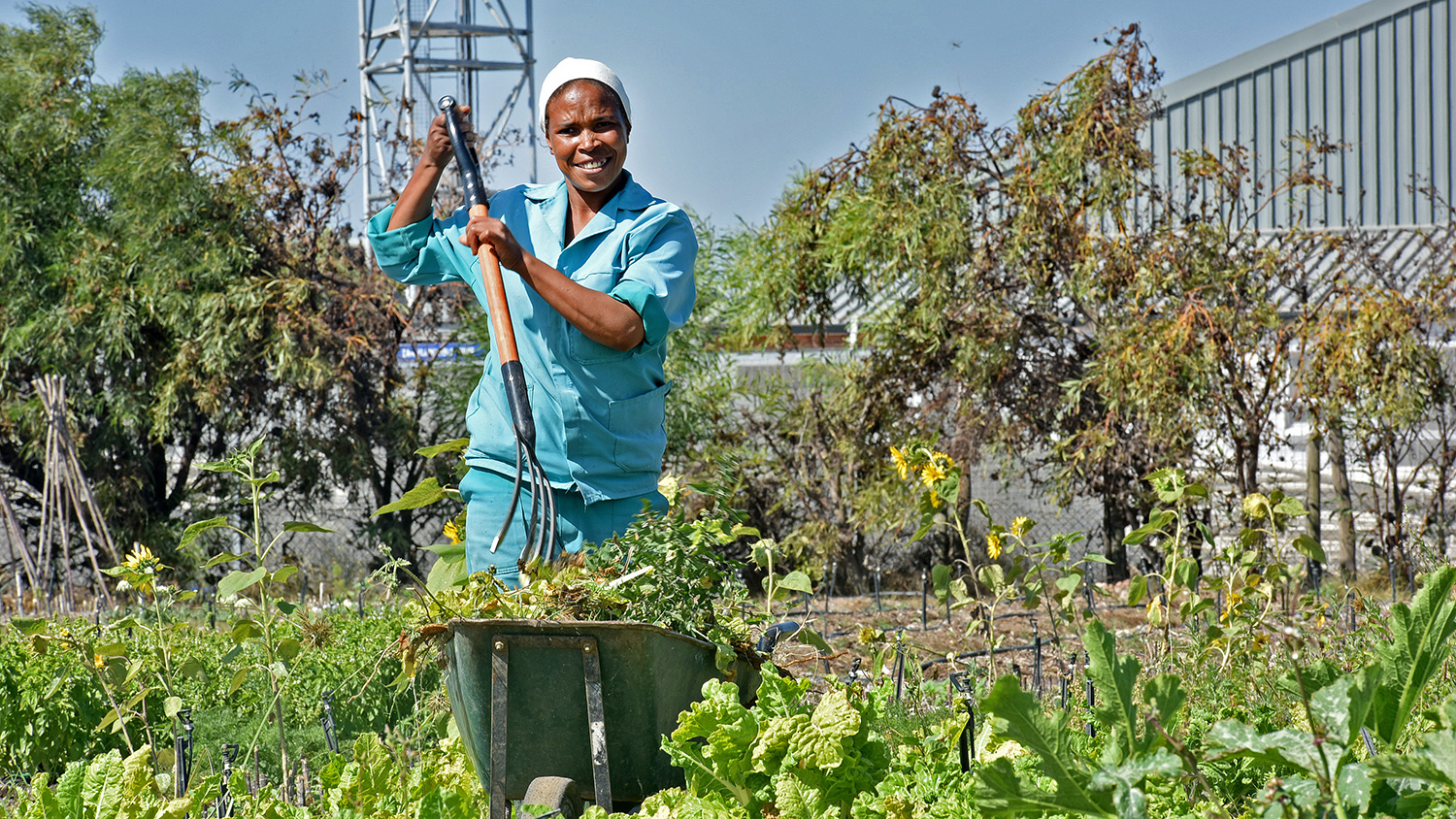
Breaking bread with and celebrating the victories of off-campus knowledge partners is one of the crucial ways in which a university can remain engaged in civic life. So, when the Philippi Horticultural Area (PHA) Food and Farming Campaign received a landmark court ruling in its favour in March, UCT joined in a special lunch celebration at the Schaapkraal farm of founder and activist Nazeer Sonday.
Apart from the courtroom victory, the celebration also served as acknowledgement of a very important relationship between UCT’s Global Citizenship Programme (GCP) and Sonday. This relationship started in the mid-2010s when the former director of the GCP, Associate Professor Janice McMillan, approached him to share his knowledge around civic engagement and active citizenship in several GCP short courses, as well as on a credit-bearing course in the Faculty of Engineering & the Built Environment (EBE).
Since these courses encourage critical debate, voluntary service activities and reflection on key contemporary issues, Sonday’s experience as an activist for the protection of the PHA and the Cape Flats Aquifer offered a perfect fit.
Social Responsiveness Award: a unique study on youth and HIV
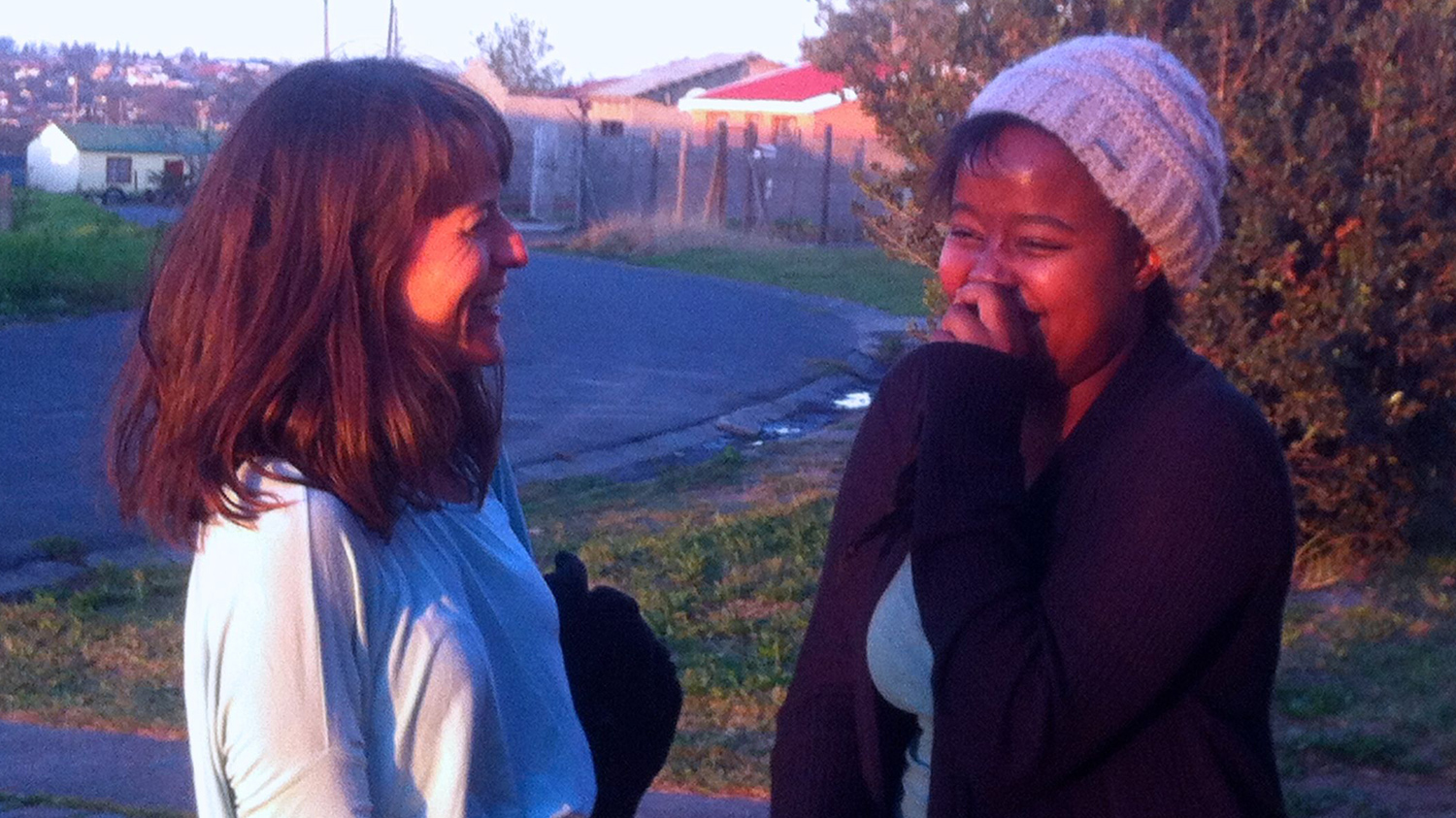
South Africa has the world’s largest cohort of young people with HIV. More than 300 000 adolescents aged between 10 and 19 are living with the virus. Part of the born-free generation, their health outcomes – and those of their families – reflect the triumphs, as well as the enduring challenges, of post-apartheid healthcare. This is according to Dr Rebecca Hodes, the recipient of UCT’s Social Responsiveness Award for 2019.
Dr Hodes is a researcher in UCT’s AIDS and Society Research Unit, which straddles the faculties of Humanities and Health Sciences. The award recognises her collaborative study Mzantsi Wakho (Your South Africa), which was conducted in the Eastern Cape.
It is a large, longitudinal, mixed-methods study about adherence to medicines and sexual health practices among young people living in post-apartheid South Africa. The researchers worked in 108 facilities across the province.
The study is unique because of its participant population: over 1 000 HIV-positive adolescents and young adults, most of whom were vertically infected through mother-to-child transmission at a time when antiretroviral (ARV) treatment was inaccessible.
The study began in 2013 with a research grant by the International AIDS Society’s Collaborative Initiative for Paediatric HIV Education and Research. In partnership with the University of Oxford’s Department of Social Policy and Intervention, the UCT AIDS and Society Research Unit established the study in the Eastern Cape. Hodes has led its qualitative research components since 2013. In 2015 Mzantsi Wakho researchers were lead authors on South Africa’s National Adolescent and Youth Health Policy.
UCT medical students make a difference on the frontline

Students from UCT’s Faculty of Health Sciences (FHS) have been playing their part in the country’s fight against the COVID-19 pandemic.
When the pandemic hit and the national lockdown was enforced, UCT Surgical Society’s (SurgSoc) executive team were quick to respond and assisted with the coordination of initiatives such as the Groote Schuur Hospital Ward Work.
Fifth- and sixth-year medical students volunteered their time and skills in the initiative at Groote Schuur from June onwards, working with the hospital’s social work and liaison teams and assisting in the hospital wards.
They helped by taking blood samples, putting up drips and doing porter duties. They fetched and carried personal protective equipment, oxygen cylinders and other equipment. They helped to update bed status and with record-keeping and other administrative tasks, as well as doing clinical assessments under supervision and participating in ward rounds, answering telephones and relaying messages and discussing and updating families on the condition of their relatives.
The society’s executive members also assisted with the coordination of three other initiatives in response to the pandemic. This means that by September, around 250 UCT health sciences students had volunteered alongside and assisted those on the frontline.
There were also student volunteers staffing the Western Cape Government’s COVID-19 hotline, which began operations in March; medical students assisting in Groote Schuur Hospital’s COVID-19 testing centre, which launched in May; and students also assisted with the province’s case and contact tracing since April.
Students keep elderly citizens company
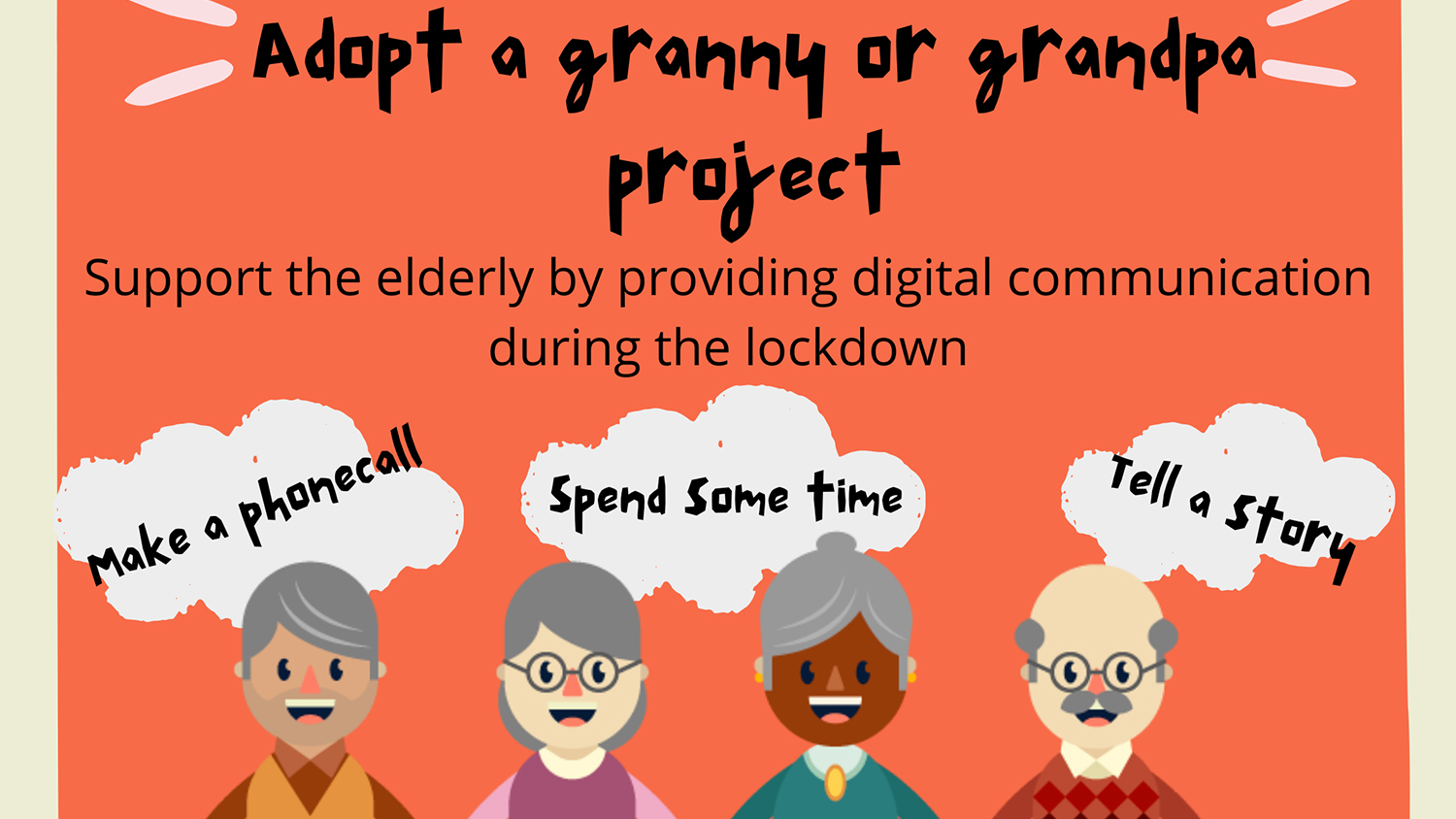
During ‘hard lockdown’, a group of UCT medical students kept elderly citizens company – from a safe distance. The initiative is known as Adopt a Granny/Grandpa and is the work of the student-led UCT Surgical Society (SurgSoc), in partnership with social housing provider Communicare.
SurgSoc is affiliated with the Department of Surgery at Groote Schuur Hospital. It’s a group of over 600 medical students who have a passion for surgery, research and outreach. Before the pandemic, their activities included arranging talks, workshops, research projects and outreach initiatives.
During the earlier stages of the lockdown, Communicare approached SurgSoc after the students had run a successful vaccination education campaign with elderly residents. The students jumped at the opportunity, this time by providing elderly residents with companionship during the lockdown.
When the ongoing initiative was launched in July, Communicare paired volunteers and residents based on common interests and values. Volunteers were also provided with a list of guiding questions, tips and techniques to assist them with making weekly phone calls to their paired granny or grandpa.
If volunteers were worried about the health and well-being of their paired grandparent, Communicare was available for additional assistance.
The students hope the initiative will continue. SurgSoc also wants to increase the number of student volunteers and would like to branch out into other projects that enhance the health and well-being of elderly people.
SHAWCO Health hard at work during pandemic
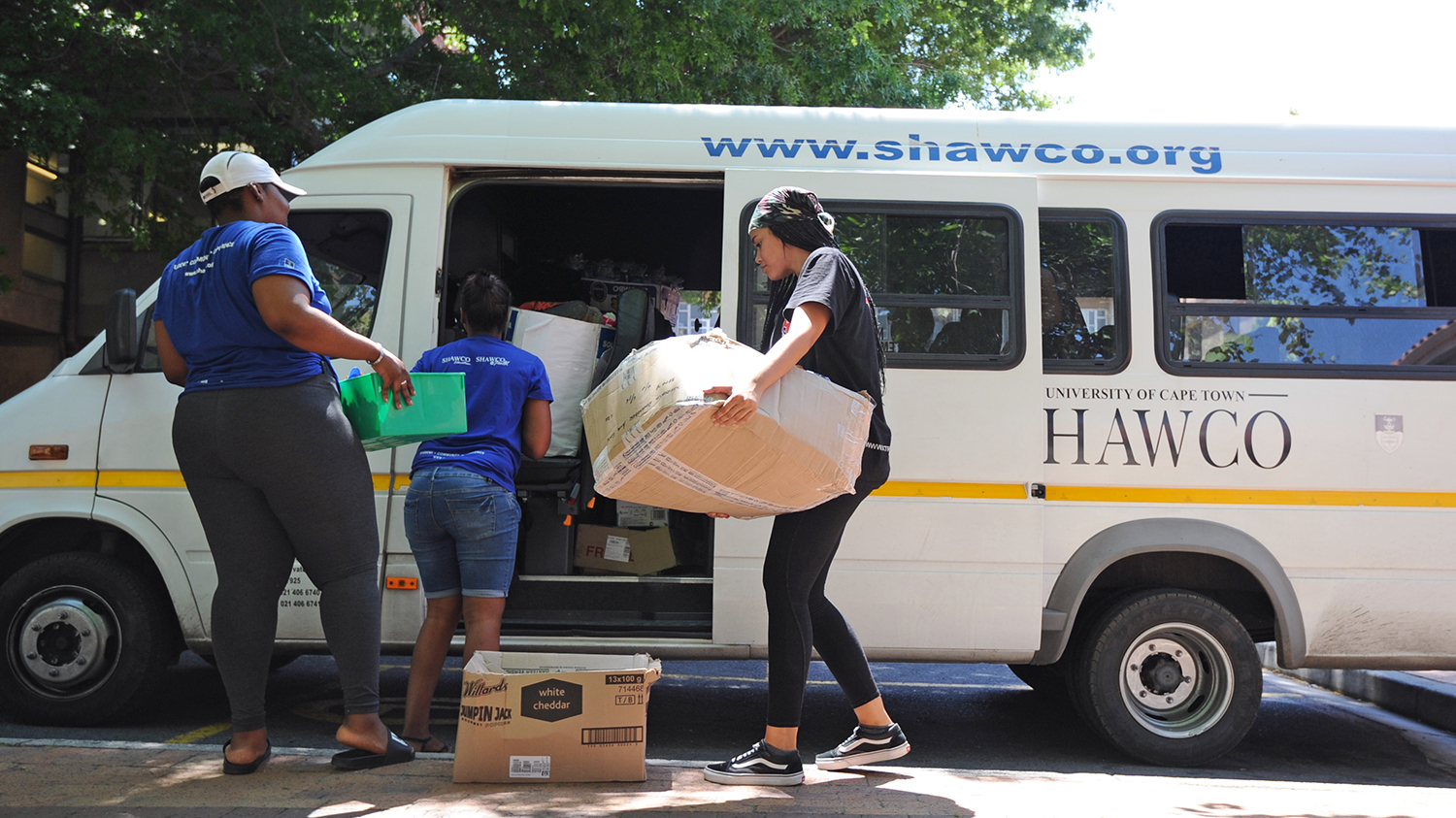
In response to the COVID-19 pandemic, UCT’s Students’ Health and Welfare Centres Organisation (SHAWCO) stepped up to continue their work in under-resourced communities across Cape Town.
Along with the education team, SHAWCO Health adapted and responded to the needs of their partner communities, which include Imizamo Yethu and Hangberg in Hout Bay, Khayelitsha, Gugulethu and Manenberg.
Shortly after news of the impending lockdown broke, the SHAWCO Health team created pamphlets in English, Afrikaans and isiXhosa. These contained important information about COVID-19 protocols and precautions, symptoms and contact details for relevant call centres. They were distributed to all SHAWCO partner communities and were accompanied by soap and hand sanitisers.
SHAWCO Health also identified challenges faced by their partner communities: overcrowding in informal settlements, lack of amenities such as bathrooms, and food insecurity. In response, the health and education teams launched the online campaign #BeKindOnline and managed to surpass their goal of raising R200 000, bringing in an additional R100 000.
SHAWCO used these funds to distribute home safety kits to over 500 households in Imizamo Yethu and Hangberg. SHAWCO Education also used some of the funds to feed over 1 000 people on the Cape Flats by collaborating with local soup kitchens.
Additional work included providing essential health services to some of the most high-risk communities; providing medical care to homeless people who had been relocated to a camp in Strandfontein; and collaborating with low-cost housing provider Communicare to provide flu vaccinations to elderly people.
 This work is licensed under a Creative Commons Attribution-NoDerivatives 4.0 International License.
This work is licensed under a Creative Commons Attribution-NoDerivatives 4.0 International License.
Please view the republishing articles page for more information.






